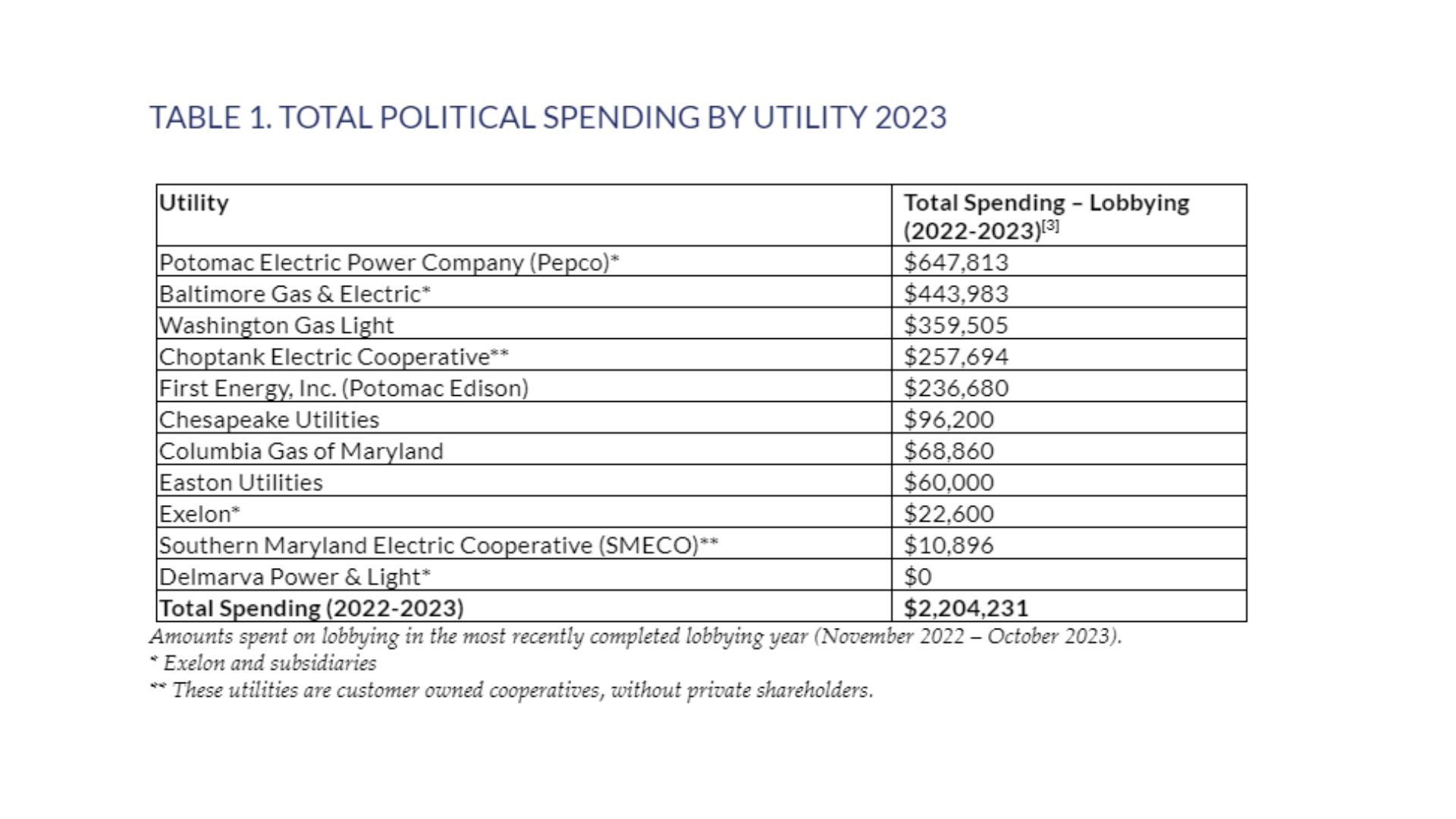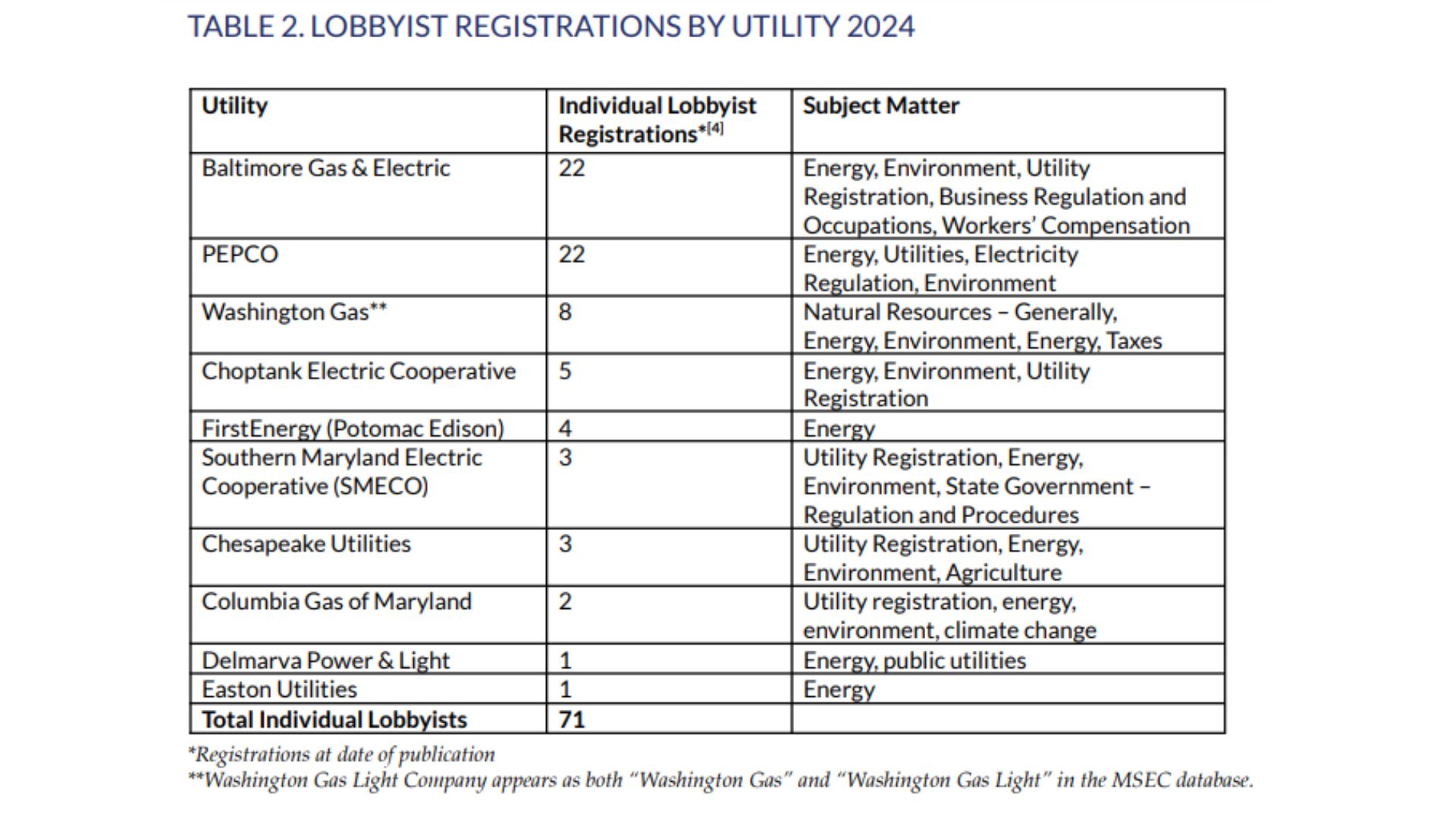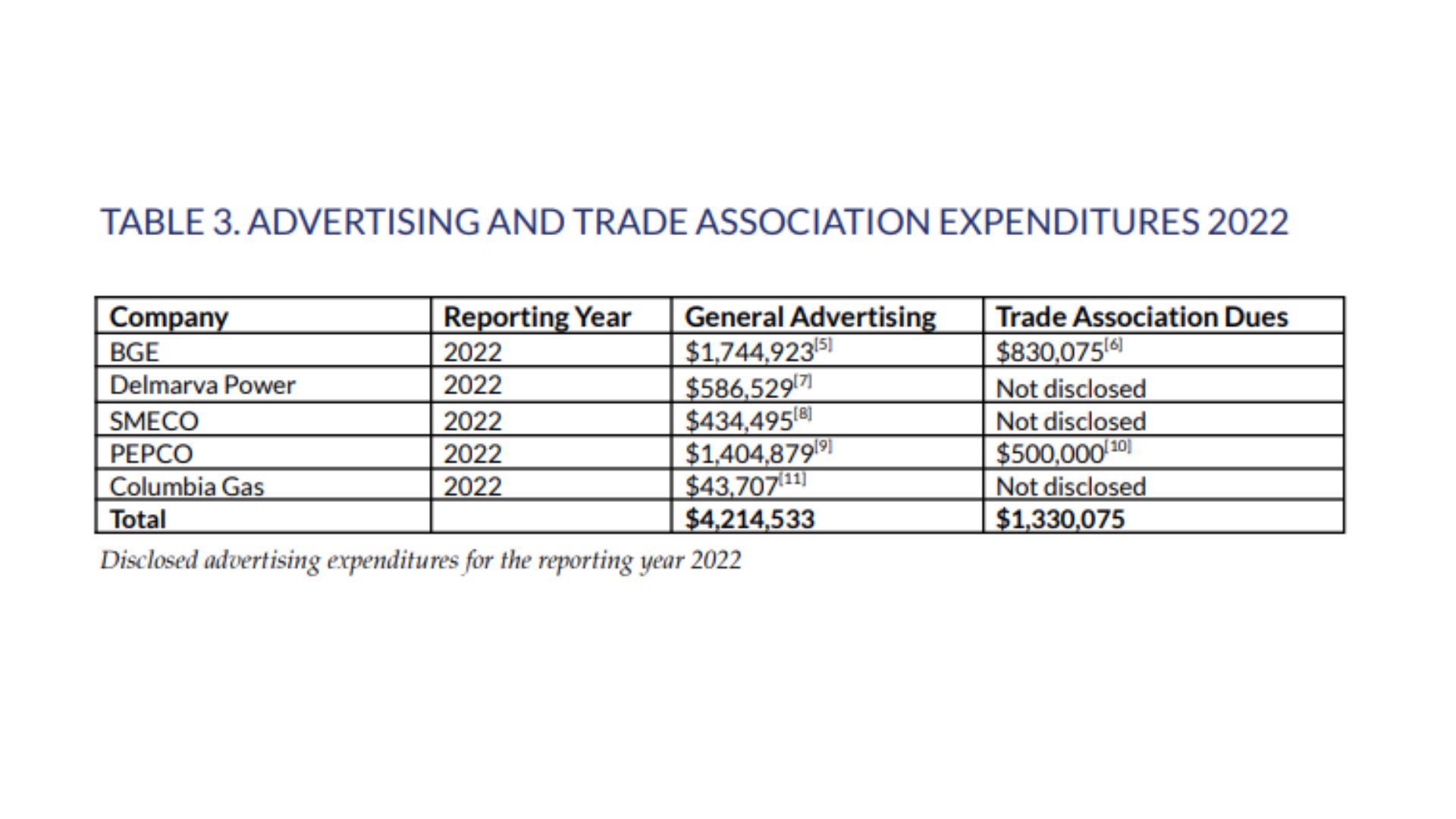
Politics of Power:
Gas and Electric Utilities’ Political Spending in Maryland
This white paper looks at utility political spending including lobbying and other activities intended to shift public opinion or influence decision-makers.
The regulated utility monopoly has long been a feature of the American energy landscape and has proven to be a successful means of providing for the public good of reliable, safe, and affordable utility service. As with all such partnerships, transparency and vigilant regulation are of paramount importance to protect the public interest. This report looks at utility political spending including lobby and other spending meant to influence public opinion and decision-makers.
As Maryland tackles perhaps its most defining energy challenge since the establishment of the industry in the form of a clean energy transition, this responsibility will be more crucial than ever.
Utility Regulation 101
Gas and electric utilities distribute energy to Maryland homes under a state-granted monopoly. These companies are able to pass costs on to energy consumers without fear of losing business to competitors.
For investor-owned utilities, this means stable, consistent return on investment. In return for this advantage, regulated utilities have an obligation to serve the public good by providing safe, affordable, and reliable utility service.
Because they have no market competition for the distribution of energy to our homes, utilities are regulated by the state, with the legislature and the Maryland Public Service Commission overseeing the companies’ operations and approving the costs they charge their ratepayers as well as the authorized rates of return on their investments. This places our utilities in a unique position in which the state has direct control over how much profit they are authorized to deliver to their shareholders. This dynamic makes utilities’ political dealings more vulnerable to corruption or the perception of corruption in the public’s eye. It’s therefore of utmost importance that utility activities designed to influence the actions of decision-makers and public opinion happen with clear guidelines and with robust transparency in the decision-making and ratemaking process.
This white paper takes a look at utility political spending including the scale of direct lobbying by regulated utilities, as well as other activities that can be reasonably categorized as intended to shift public opinion and influence decision-makers. By understanding what kinds of activities regulated utilities engage in to directly influence policy or shape public opinion, Marylanders, regulators, and decision-makers can arm themselves with the facts that will allow them to hold regulated utilities accountable for staying focused on the public good.
Utility Political Spending
Utility Political Spending: Lobbying
Accordnig to available financial disclosure filings, Maryland’s regulated utilities were active in lobbying members of the Maryland General Assembly during the most recently completed lobbying year.
Utilities spent more than two million on lobbying during the 2023 reporting year, particularly relating to energy, the environment, decarbonization, decommissioning of power plants, and the implementation of the Climate Solutions Now act, Maryland’s landmark climate transition legislation.
According to activity reports, top spenders Baltimore Gas & Electric and Pepco, which are both subsidiaries of Exelon Corporation, engaged on more than 50 bills during the 2023 legislative session.
Utility Political Spending: Advertising Expenses and Trade Association Dues
Regulated utilities sometimes engage in advertising, communications, and other spending that does not directly lobby elected and other government officials, but instead seeks to sway public opinion on a relevant issue. Some of these expenditures may be classified as “grassroots lobbying” expenditures under the Maryland Public Ethics Law when they seek to influence public opinion about a specific piece of legislation.
Regulated utilities also disclose some of their advertising expenditures in the annual reports they file with the Maryland Public Service Commission, as well as in disclosures they file with the Federal Energy Regulatory Commission (FERC). Expenditures on advertising required to deliver energy to customers can be recovered through rates, whereas promotional advertising and political advertising should not. The law on this, however, is somewhat murky.
While the specific advertising activities undertaken are not disclosed in public filings with the PSC, evidence of these activities is hard to miss. As one example, BGE ran sponsored content in the Baltimore Business Journal in support of its 2023 multi-year rate case filing at the Maryland Public Service Commission. In the sponsored content piece, as at the PSC, BGE argued that new gas infrastructure should be part of an “integrated approach” to climate transition—a cost that would fall to Maryland consumers. Similarly, BGE has purchased at least six pieces of sponsored content in the Baltimore Banner, including a version of the same piece it ran in the Baltimore Business Journal, and a related piece charging that “loud and unaccountable voices claim that natural gas has no role in Maryland’s energy future.”
More details and data available in the full report.
Topics
Authors
Emily Scarr
State Director, Maryland PIRG Foundation
Emily directs strategy, organizational development, research, communications and legislative advocacy for Maryland PIRG. Recently, Emily helped win small donor public financing in Montgomery and Howard counties, and the Maryland Keep Antibiotics Effective Act to protect public health by restricting the use of antibiotics on Maryland farms. Emily also serves on the Executive Committees of the Maryland Fair Elections Coalition and the Maryland Campaign to Keep Antibiotics Working, and the Steering Committees for the Maryland Pesticide Action Network and Marylanders for Open Government. Emily lives in Baltimore with her husband and dog.
Find Out More

Energy Efficiency for Everyone

Stepping Up to Bigger Savings

“Certified natural gas” is not a source of clean energy




